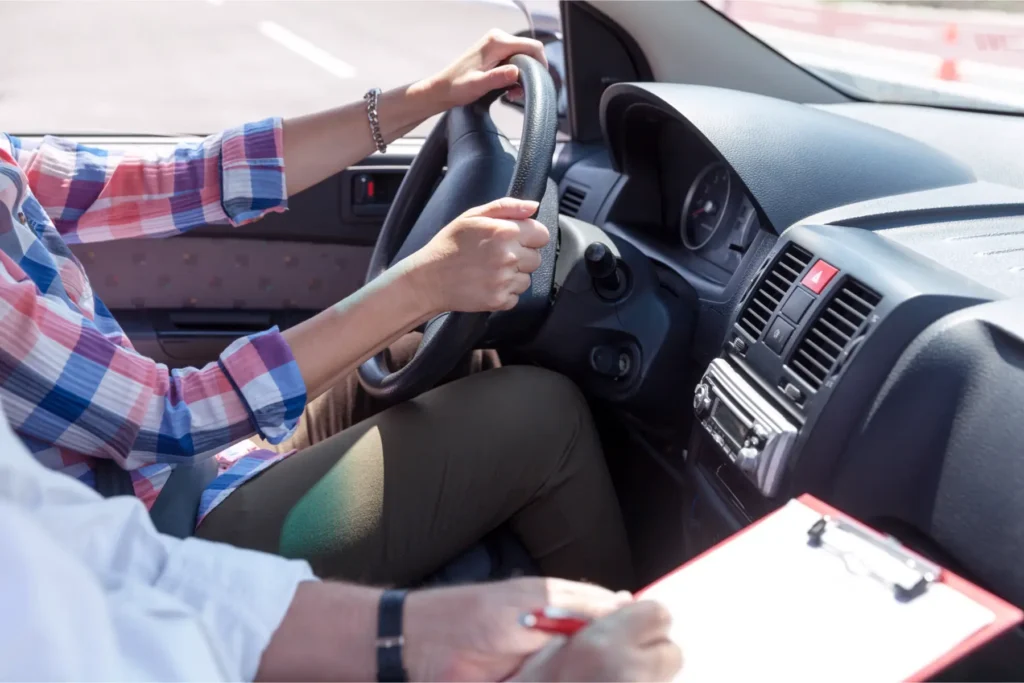Driving in Qatar tends to be convenient & flexible, particularly among residents & tourists intending to step away from the city. The use of highways & their road networks makes it easy to navigate through the country. However, it becomes imperative that you learn the local rules, cultural norms, & driving expectations for your safety. This guide contains everything on driving power & legality within Qatar.
Driver’s License Requirements in Qatar
To drive legally in Qatar, residents just need to have their own valid Qatari driver license. Nevertheless, for visitors, a simple driving permit (international driving permit or IDP) or even a license from one of the approved countries would suffice. Through the Qatar Driving License Check Online service, you can check the validity of your license to ensure that you are not committing an expired violation.
Key Traffic Laws & Regulations in Qatar
The following list outlines the main traffic laws & regulations in Qatar:
- Seat Belt Regulation: Seat belt mandatory for the driver & all passengers inside while traveling in Qatar. Those who fail to comply may face fines & demerit points. Children below the age of 10 or below the height of137cm must be secured in an appropriate child safety restraint, making them even safer & compliant as per the road safety requirements prescribed by the traffic authority.
- Mobile Phone Usage While Driving: Mobile phone use while driving in Qatar, other than through a hands-free device, is strictly prohibited. It is still one of the major causes in distracting & causing accidents. Heavy penalties are imposed on those who violate the provision, while repeated offense will soon lead to greater penalties than just heavy fines, but including the suspension of the driver’s license.
- Speeding Offenses & Limits: In Qatar, speeding limit is indicated on the road, then the camera will snap your speed for limits exceeded. Automatic fines will drop into your account without any court intervention for most violations. Excessive speeding may, however, still lead to court summons and/or seizing of the car. Always count on speed signs & drive under legal limits.
- No Overtaking on the Right: Overtaking on any side other than the left would be regarded as illegal in Qatar. A driver has to overtake another from his left side & only when it is reasonable & safe to do so. In such a situation, it is very dangerous for all road users because visibility & reaction time are severely reduced; it could also lead to a heavy fine.
- Driving Under Influence: Driving under the influence of alcohol & drugs is strictly prohibited in Qatar. The punishments for this very serious crime include imprisonment, fines running into several thousand dollars, & even cancellation of the offender’s driving license. Qatar has a clear “zero tolerance” attitude towards this kind of behavior, subjecting individual drivers to random checks where even trace amounts can lead to immediate consequences.
Speed Limits & Fines in Qatar
These are the speed limits in Qatar; 60-80 km/h for urban roads, & 120km/h for highways. Speed cameras are set up in different manners; most use automatic speeding fines. Repeated offense incurs demerit points on licenses. Confirm your speed limit from road signs to ensure safe driving without penalties.
Parking Guidelines & Restrictions in Qatar
They regulate the areas for parking almost all over Qatar, especially along busy roads. Park in the assigned parking places or multi-storey parks to avoid facing fines. Do not park in front of entrances, on pavements, or in no parking areas. Observe the signs & do not park in disabled or reserved spaces unless you’re allowed to.
Driving in Extreme Weather Conditions in Qatar
Qatar has a desert climate, which includes hot, foggy weather & occasional sand storms. Do not drive in heat for a long duration during the summer months, & regularly check the coolant levels. Drive slowly with headlights on for fog & pull over with the windows closed until visibility conditions during a sandstorm improve. Always check weather forecasts for adjustments in driving habits for maximum safety on the road.
Cultural Etiquette on Qatar Roads
Below is a list of cultural etiquette on Qatar roads:
- Respect Pedestrians: To Drivers, they should be ready & well-acquainted to step out into the streets in Qatar, especially in areas where crosswalks or mosques are located. Always slow down as you approach pedestrian zones & yield. These are values by which the Qatarians are respected: courtesy & hospitality.
- Avoid Aggressive Driving: The overtly aggressive behaviors such as excessive honking, tailgating, flashing your headlights are generally not accepted in Qatar. The spirit of driving in Qatar encourages the peaceful yet patient drive since road rage is considered disrespectful plus un-Islamic while respect towards other fellow drivers would maintain a harmonious state in public space.
- Proper Use of Car Horn: The vehicle horn should be used only to warn others about danger & not to blow with annoyance or impatience. Continuous honking, especially nearer residential areas, hospitals, & so on during prayer times, is considered quite overzealous & loathsome culturally speaking.
- Show Courtesy at Roundabouts: At roundabouts, courtesy dictates that a vehicle, upon approaching the roundabout, should give way to the cars using the roundabout ahead of it before entering. Using your signal lights & patience will add to the success of this etiquette. This etiquette serves to smoothen traffic & reflects high esteem given to mutual respect in the culture of Qatar.
- Do Not Show Offensive Indicative Gestures: Indicative gestures like hand signals, yelling, & any form of offensive body language are said to be restricted & could, at most, lead to a legal consequence. Therefore, holding a calm & respectful demeanour even under extreme stressful-aggressive situations set these standards to act in accordance with Qatari politeness & self-control.
What to Do in Case of an Accident in Qatar
If the accident was minor & no one was injured, pull vehicles off into the roadside, then call 999 or use the Metrash app to report. For serious accidents, wait for emergency services & do not move the vehicles involved. They should exchange insurance details & take pictures for documentation. Be open with the police & follow legal procedures to file a proper report.
Driving Schools in qatar
Driving schools in Qatar offer a very specialized & necessary service to prepare much of the population for driving responsibilities. They provide theory classes, practical training, & simulation tests to gear students toward meeting their licensing requirements. Well-known schools include Karwa Driving School, Alijarah Driving School, & the Doha Driving Academy. After knowing Alijarah Driving School Price List and other schools prices you can compare them to choose the best school.
Conclusion
Driving in Qatar can be enjoyable & effective, provided individuals are willing to respect the rules of engaging in the local driving culture. Well-built roads, easy-to-use apps, & accessible services make it easy for residents & visitors alike to find their way around Qatar. Qatar E-Portal guide will serve as a reference for legal & smooth driving throughout the individual’s stay in the country.






